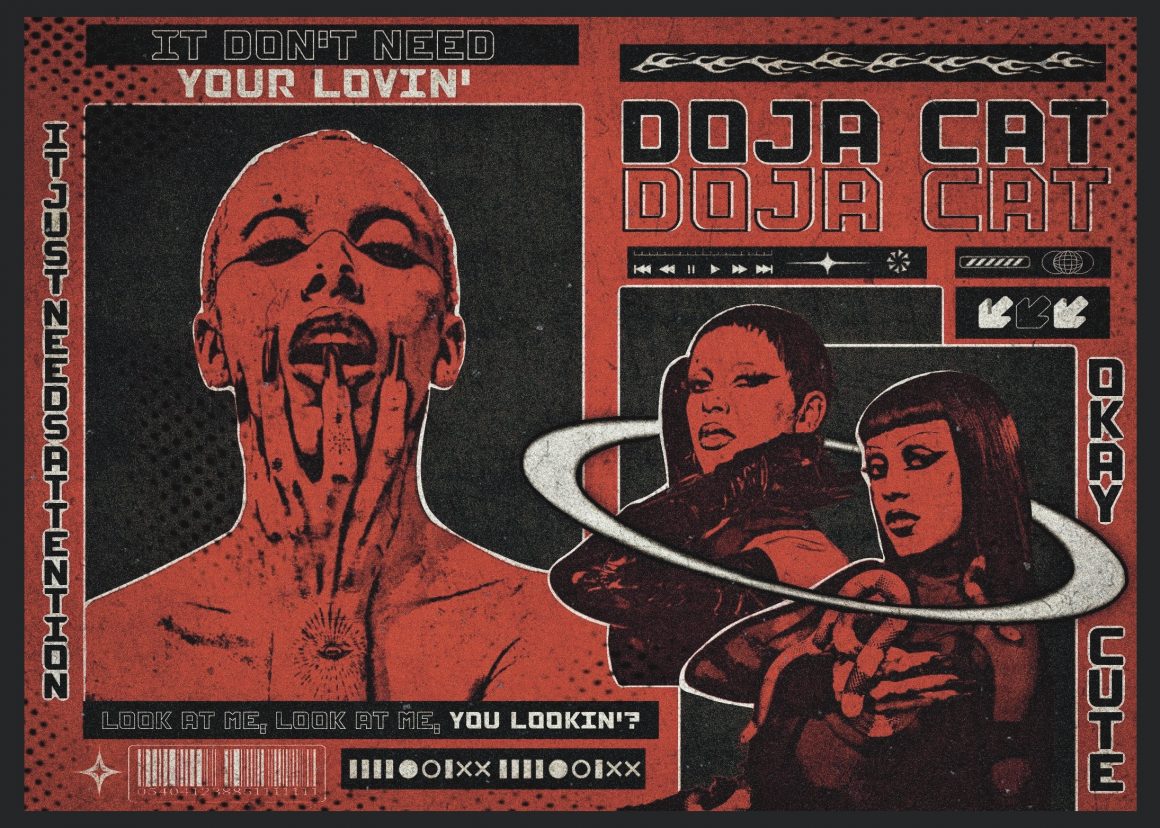
Being different: Doja Cat and being a demon
By Reyam Jamaleddine, August 12 2023—
Somewhere along her explosively successful career, Doja Cat exchanged her typical self-portrayal for an unconventional pop-star identity. She displayed a sharp aversion from the status quo of being America’s darling to what we now see as a rebellious act against the male-categorized sex icon. She no longer serves the gaze of men and chooses to fully embody who she wants to be not only as an artist but as an individual.
Unable to cope with the change of a beloved icon becoming someone different, the scapegoating began. Devil worshipping, demonic tendencies and selling her soul to the Illuminati — these are the categories society attempts to fit her into so her unconventional style or decisions to change can be blamed and understood. Examiners of her identity chose to be unaccepting of the person she wanted to become through her own autonomy. If shaving her head and becoming more comfortable with her identity meant she worshipped the devil and was demonic — then so be it.
In our non-elite societies and small quiet communities, the implicit narration of the witch or the devil is present even in the notion of peace and serenity. If an individual is to initiate an act that disrupts the homogeneity of the community then that person is incidentally ex-communicated. The nature of an individual making decisions for themselves is burdensome to the status quo. These are the seemingly small and insignificant narrations of circumstances that we have all grown up with.
The likelihood of these structured responses to differences emerging from an unintentional subconscious are high. The demonic trope is as old as when storytelling was introduced to mankind. It becomes easy — the status quo to utilize narration and thought processes older than time itself. Thoughts enter our brains in these manners willingly or unwillingly, these ancient responses serve as cookie-cutters for our thoughts. When these tropes imbed themselves into our small and quiet communities, they give the illusion of being an innumerable point of human existence — yet they are far from being trivial. They collect from society to society and generation to generation and erupt in the faces of scapegoats such as Doja Cat.
I have never witnessed the usage of devil worshipping as slander in the face of legitimate evil. Demonic and evil, malicious or conniving all are mutually exclusive in their own respects. I have learned to understand the term demonic as a means for slandering those who are different and audacious. It serves to be praise in my perspective — praise for those who have the courage to be different in a world scared of difference. For these reasons, I aspire to be demonic.
In my own little world, in the small quiet communities that I have grown up in, I cruise against the status quo for what is conventional for those who identify in the same way as myself. It never posed to be easy to have my identity stripped away from me by people who never had the right to do so in the first place. My self, unable to cope with the loss of a community, I become a shallow coward who forces my unfitting identity into rigid boxes that were created for people who are not like me. From religion to culture to my morals and values, my contrasting beliefs are deemed to be ungodly and lesser than. These communities who pose themselves on higher moral grounds would never accept me if I decided to be myself and live in disregard to their homogeneity. Being marginalized is not a point of the human experience that I want to live in forever, therefore I brood in my cowardly tendencies.
Doja Cat is the focal point of this article because although it seems the whole world has turned against her she lives in marginalized space as if it is the space in its entirety. She is a dangerously audacious woman in the face of relentless and blatant hatred and slander. A feminist icon, an identity icon and a model for owning being different. If self-autonomy is demonic, then I too, wish to be a demon.
This article is a part of our Voices section and does not necessarily reflect the views of the Gauntlet editorial board.
